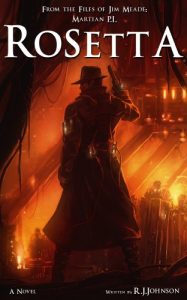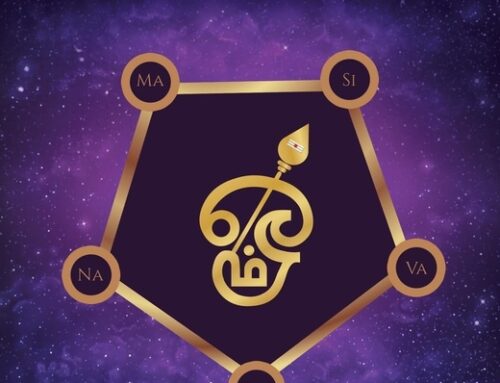 Jim Meade is an underachieving private investigator who lives on a Martian mining colony. Nuclear war has rendered Earth habitable by only a horribly oppressed underclass; the more fortunate survivors dwell in orbital cities surrounding the planet. Meade has loyalties to neither of the superpowers who run the post-apocalyptic galaxy, a duo of empires reminiscent of old cold-war foes USA and USSR. Jim’s ultimate goal in life is strictly mercenary. He wants to make enough money to retire to one of those orbital cities.
Jim Meade is an underachieving private investigator who lives on a Martian mining colony. Nuclear war has rendered Earth habitable by only a horribly oppressed underclass; the more fortunate survivors dwell in orbital cities surrounding the planet. Meade has loyalties to neither of the superpowers who run the post-apocalyptic galaxy, a duo of empires reminiscent of old cold-war foes USA and USSR. Jim’s ultimate goal in life is strictly mercenary. He wants to make enough money to retire to one of those orbital cities.
In typical P.I. novel fashion, Meade, who has never left Mars and has no plans to do so, agrees to investigate a murder on Rosetta, a not-so-nearby mining asteroid. He takes the job only for the money—and because doing so would be less hazardous than saying no to the powerful players who want his help. The case turns out to be bigger—much bigger—than a simple murder.
On the surface, Rosetta is a combo plate of science fiction, detective story, and political thriller—with a space cowboy as the main character. The cocky, independent Meade sounds like Han Solo with a Texas accent. His good friend and sidekick, Emeline, is a combination of wise, Old-West bartender and cyberpunk feminist. They make a charming, if unlikely, pair. Rosetta is fast paced, with plot twists and revelations that keep the reader as off-footed as the gravity fluctuations on the spaceship that transports Jim and Em to Rosetta.
But underneath the excitement, Rosetta provides social commentary on issues ranging from economic exploitation to feminism to slavery; it addresses the moral complexities of staging an uprising and asks intriguing questions about the cost-benefit ratio of revolution. For the most part, Johnson handles these themes gently and thus avoids turning an exciting tale into a tedious socio-political treatise. In fact, these explorations give the book a depth and thoughtfulness found in the best science fiction.
The action sequences (and there are plenty of them) are well done. In places Rosetta has a very cinematic feel. In one chase scene, a flying motorcycle (called a “flyber” in the story) slips in the open window of an office building, zips through hallways, down the stairwell, and back out the front door, leaving frightened office workers cowering amid a whirlwind of flying papers, and leaving readers chuckling—even in this high-tech future, office workers still shuffle paper.
I was troubled by a few inconsistencies in characterization (a couple of the bad guys are in some places truly evil and in other places seem to have rather deep veins of decency) and a need for some backstory to explain how certain characters came by their esoteric knowledge and amazing skills. That did not stop me, however, from engaging with the characters and reading eagerly to find out how it all worked out. The book could have used some tighter copy-editing, but the occasional errors were not distracting, and the book was very nicely formatted, making it a pleasure to page through on a Kindle.
Links
Get an Editorial Review | Get Amazon Sales & Reviews | Get Edited | Publish Your Book | Enter the SPR Book Awards | Other Marketing Services






















Leave A Comment